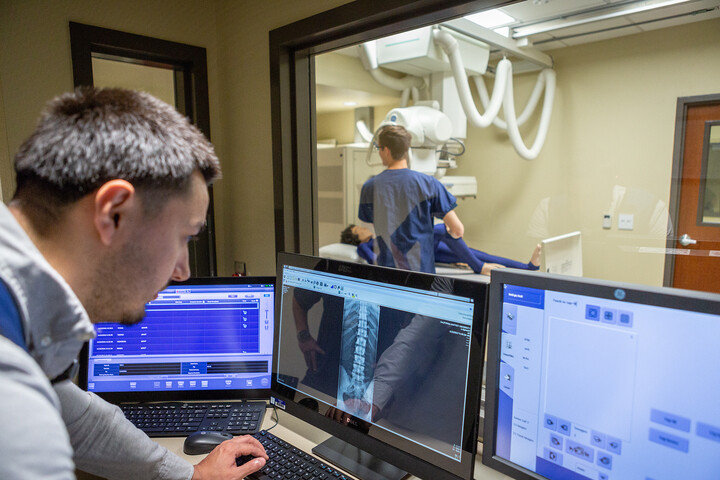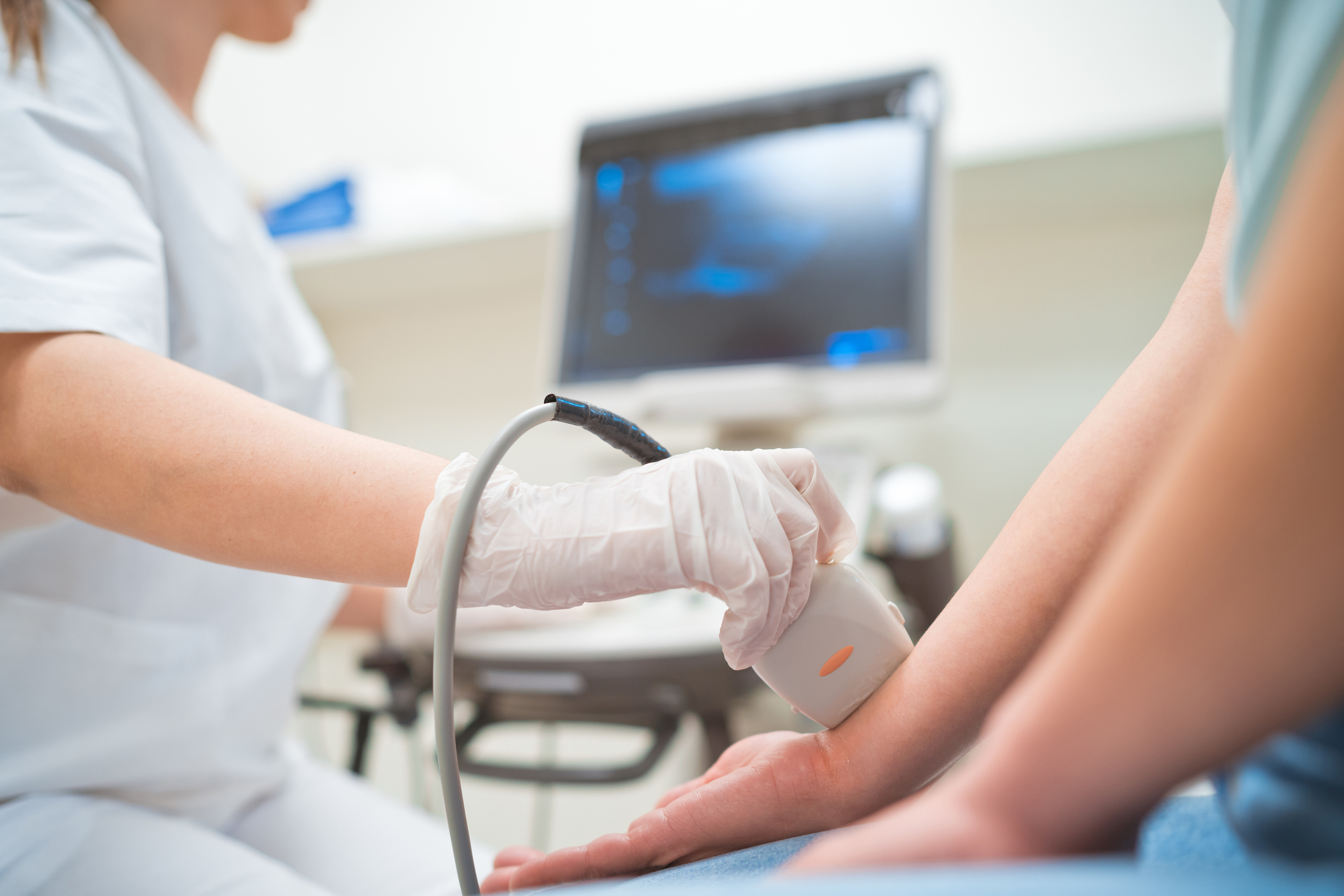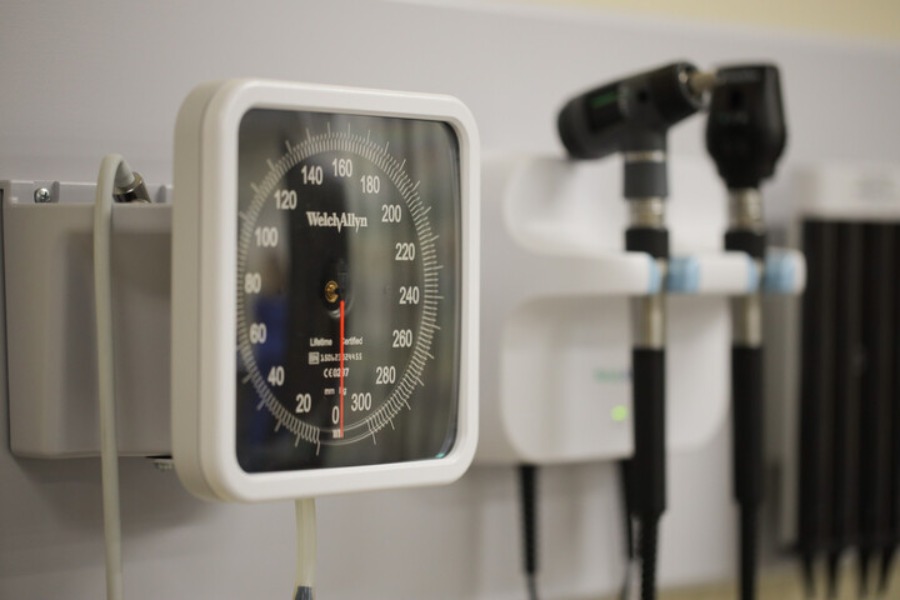Radiography, BS
Radiologic technologists work with patients and physicians, performing a wide range of diagnostic X-ray imaging exams and procedures. CBU’s radiography program teaches students how to professionally care for and handle patients in both ambulatory and hospital settings.
Program Intro
Students in CBU's radiography bachelor's program gain hands-on experience with state-of-the-art radiology equipment as they study the principles of anatomy, physiology, pathology, radiographic imaging and radiation safety.
Why Study Radiography at CBU?
CBU is one of a few schools within Southern California to offer a BS in Radiography. This program integrates faith-based learning with advanced imaging, and we educate our students with the most advanced equipment within the industry. Students will learn both in the classroom and in partnership clinics and hospitals in the community.
What You'll Learn
Students graduating with a bachelor's degree in radiography will learn to:
- Obtain diagnostic radiographs.
- Follow regulatory standards of radiation safety devices and employ ALARA principles.
- Provide compassionate patient care in an increasingly diverse society.
- Ethically apply stewardship over the security and confidentiality associated with patient medical information.
- Communicate effectively with other healthcare professionals in the clinical setting.
- Obtain accurate patient histories.
- Determine the appropriate sequences for multiple exams.
- Adjust exposure variables for unacceptable radiographs.
Program Details
RAD 220: Patient Care in Radiologic Sciences
This course introduces the concepts of optimal patient care, including consideration for the physical and psychological needs of the patient and family.
RAD 320: Principles of Imaging
In this course students will establish a defined knowledge base of factors that govern the radiographic image production process.
RAD 440: Radiologic Biology and Physics
This course provides an overview of the principles of the interaction of radiation with living systems.
The California Baptist University radiography program maintains regional accreditation through the Western Association of Schools and Colleges Senior College and University Commission, and state authorization through the California Department of Public Health, Radiologic Technology Division. The radiography program is accredited by the Joint Review Committee on Education in Radiologic Technology:
20 North Wacker Drive, Suite 2850
Chicago, IL 60606-3182
312-704-5300
Email: mail@jrcert.org
The program’s current award is probation. General program accreditation information
and the current accreditation award letter can be found here. The JRCERT is the only agency recognized by the United States Department of Education
(USDE) and the Council for Higher Education Accreditation (CHEA) for the accreditation
of traditional and distance delivery educational programs in radiography, radiation
therapy, magnetic resonance, and medical dosimetry.
Please visit https://www.jrcert.org/ for more information.
The CBU radiography program received its initial accreditation in 2019 for a term of 18 months. Following the program’s next site visit, CBU radiography was awarded an accreditation term of 8 years in 2021. In February of 2024, JRCERT conducted an unannounced site visit of the CBU program and awarded the status of probation. The next scheduled JRCERT site visit for the CBU radiography program will take place in the Fall of 2025. California state authorization is reviewed annually, and the university’s next WASC site visit is also in Fall 2025. If you have any questions about the university or radiography program accreditation, please contact the College of Health Science office at healthscience@calbaptist.edu.

Mark A. Deharo, D.H.S.c.
Associate Professor of Radiologic Sciences
Program Director, Radiologic Sciences
Office Phone: 951-552-8346
E-mail: mdeharo@calbaptist.edu
Office Location: Health Science Campus, D52

Derek Hernandez
Lecturer of Radiologic Sciences
Office Phone: 951-552-8369
E-mail: dehernandez@calbaptist.edu
Office Location: Health Science Campus, D54

Cara Jackson, BA
Assistant Professor of Radiologic Sciences
Clinical Coordinator, Radiologic Sciences
Office Phone: 951-552-8128
E-mail: cajackson@calbaptist.edu
Office Location: Health Science Campus, D53
The Bachelor of Science in Radiography program is designed for both first-time freshman and transfer students who want to earn a bachelor's degree in radiography.
Up to 30 students are selected for the program annually for a fall semester start.
Selection is made through holistic admission and includes a combination of metrics, attributes and experiences. Students can showcase their personal and academic achievements through many aspects of the application, such as the cumulative GPA, prerequisite GPA, letters of references, experience, community enrichment and passion and understanding of the profession. The program utilizes a rubric to determine the acceptance of students. The rubric evaluates students based on the following criteria: current CBU student (5 points), overall GPA X 10 (40 points possible), prerequisite GPA X 10 (40 points possible), letters of references (10 points possible), clinical observation hours (10 points), and interview with faculty (5 points possible). A minimum overall 3.0 college/university GPA on a 4-point scale is required.
Upon being accepted into the radiography program, each student must obtain a background check and drug screening through CastleBranch. The screening fee is currently $141.98 and is the responsibility of each student.
We have more applicants for the program than we have spaces available and we are very selective. We consider students who are enrolled or have completed units at CBU and then we will consider transfer students.
During the course of the BS in Radiography program students will be exposed to electricity, infectious materials and radiation. Students will be instructed on the use of specialized protective equipment and clothing.
Students must be prepared for the following physical demands of the clinical setting: Frequent walking and standing throughout an 8-10 hour shift. Occasional sitting and bending. Requires power grasping, precision grasping, pushing/pulling, and fine manipulation in both hands. Reach or work occasionally above and below shoulder level. Occasionally requires use of both feet to operate foot controls or for repetitive movement. Frequently lift and carry 10 lbs or more; and occasionally lift and carry over 250 lbs (with assistance).
Visual and auditory requirements: continuously demonstrate near and far vision; frequently demonstrate color discrimination, discern speech in quiet/noisy locations, locate origin of sounds, and discern non-speech sounds. Use sense of smell and/or touch to distinguish/identify odors/objects.
Cognitive skills include: being able to learn new information, understanding technical information, and applying critical thinking skills.
Students must be able to work in a diverse patient population. Must adhere to patient privacy and each institution’s HIPAA guidelines.
Students must maintain essential job functions throughout the program. If a student is unable to perform these essential job functions, it may result in dismissal from the program.
To view the radiography student handbook, click here.

Student Opportunities: Labs
Students learn on state-of-the-art radiology equipment compatible with the equipment used in the field. Labs used in the radiography program are licensed to conduct radiology exams and procedures.
Career Possibilities
Graduates of CBU's radiography bachelor's program will be well prepared for various careers in the health industry. Some careers listed below may require further education.
- Radiologic Technologist
- Radiology Manager
- Lead Radiologic Technologist
- Radiology Supervisor
- Interventional Radiographer
- MRI Technologist
- Mammography Technologist
- Computed Tomography Technologist
Next Steps
Join our community. At CBU, you’ll be challenged to become an individual whose skills, integrity, and sense of purpose glorify God and distinguish you in the world.





